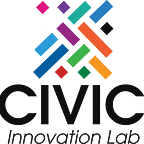Nigerian Women Who Revolutionized Jazz As We Know It Today
Jazz as a music tradition originates from the Afro-descendant population of New Orleans, Louisiana, USA, in the late 19th and early 20th centuries. Throughout its history, jazz has been written, sung, played, and enjoyed by women of African origins, including iconic figures such as Nina Simone, Ella Fitzgerald, and Billie Holiday. These women, who used jazz music as a platform to speak against slavery and racism, have become models of freedom and emancipation.
Did you know: In 2011 UNESCO declared April 30 as International Jazz Day
Nigeria’s experiment with jazz music began in the ’40s, particularly after WWII, with the return of artists such as Tunde Amuwo, Bobby Benson, and Soji Lijadu from Europe.
Like most other aspects of human endeavor, jazz in Nigeria is male-dominated. And it’s easy to see why: the Nigerian Broadcasting Corporation’s Dance Orchestra, a semi-big band that played and featured jazz music in the ’50s, was the first in the country and included as its members Steve Rhodes, Fela Sowande, E. C. Arinze, Chris Ajilo, and Mike Falana — an all-male band. Around this time, the afrobeat legend Fela Anikolapo Kuti returned to the country and formed the Fela Ransome-Kuti Jazz Quintet, the first Jazz band in Nigeria. Shortly after, Tunde Kuboye formed the famous Jazz 38 club in Lagos, with his Extended Family band on duty entertaining guests, while Doye Agama introduced an annual jazz festival in Port Harcourt that witnessed performances from icons such as Art Alade, Eddie Okonta, Steve Rhodes, Tony Benson, Geraldo Pino, and Sonny Brown. And so continued the growth of jazz in Nigeria, with the male figures already dominating the field.
But in the ’50s, the pioneering female jazz musician, Maud Meyer, emerged and thrived as the first female representative in jazz music, performing in clubs and in the style of Billie Holiday. The genre has, ever since, witnessed the contributions of several other equally talented women throughout its history.
On the occasion of Jazz Appreciation month and with International Jazz Day being April 30, we are excited to bring you a list of women who, despite the dominance of male figures in the genre, rose to prominence and worked hard to help blaze the trail of jazz music in Nigeria.
Mary Affiong Usuah
Mary, who’s from Calabar, Cross River State, trained as an opera singer at St. Cecilia Academy, Rome, touring Europe for 13 years afterward with artists such as Duke Ellington and Deep Purple. With as little as two albums in her discography, Mary captivated the world with her impressive vocals, blending jazz with soul, rock, funk, gospel, and highlife.
Ayinke Martins
Described by Jazz Calendar, the world’s largest jazz directory, as “the leading light in Nigerian jazz music,” Ayinka Martins has had a music career spanning 40 years — from being a TV presenter at NTA to performing for the Queen of England and to wowing jazz music lovers in music festivals across Nigeria and overseas. Ayinka fuses Yoruba with Nigerian pidgin to create her unique naija jazz.
Maud Meyer
Meyer was born in Port Harcourt, Rivers State. She was exposed to music at an early age by her mother, who herself had a music band. With her style strongly influenced by the sounds of Billie Holiday, Meyer would go on to wow her listeners with her exceptional skills. She would listen to any kind of music and adapt it into jazz, leading many to refer to her as “one of the greatest female jazz singers of all time.”
Yinka Davies
Yinka Davies is an afro-jazz singer, vocalist, dancer, lyricist, and judge of Nigerian Idol, a local version of the idol series franchise. The afro-jazz legend is the first female lead vocalist to work with Lagbaja, performing several live shows with his band. In 1992 Yinka won the FAME music award for upcoming artist of the year, and in 2007 she was awarded artist of the decade by the Nigerian Music Awards. With three albums to her name, several notable performances around the world (including Italy, Tunisia, and the United State), and a career spanning 28 years, Yinka Davies has cemented her legacy as a true afro-jazz legend.
Onyeka Owenu
Onyeka Owenu is a singer, actor, human rights activist, and politician. Through her music, she advocates for women’s rights, speaks against societal vices such as corruption and rape, and crucial issues such as health, peace, and the need for peaceful coexistence. Nicknamed “the elegant stallion” by the press, the veteran musician has also handled important leadership positions in the country, having served as chairperson of the Imo State Council for Arts and Culture and Executive Director/Chief Executive Officer of the National Center for Women Development. She has been no less successful in her acting career, appearing in numerous award-winning movies such as Half of a Yellow Sun (2013) and Lion Heart (2018), and won the 2006 African Academy Movie Awards for best actress in a supporting role. Her multi-talent, creativity, and love for her country have secured her a place among the greats in the country’s history as a whole, not just in entertainment alone.
Music represents the only form of universal language we know, and women should have as much part in it as men. The unique history of jazz music makes it a music of peace, hence the International Jazz Day celebration on April 30. Singers over the years have used the platform to speak against racism and all forms of discrimination. Art Tech District, as a cultural institution and an innovation hub, reaffirms its commitment to preserving our culture while also elevating Nigerian talents. The Discovery Museum’s Music Room holds portraits, with accompanying playlists, of some notable jazz icons in the country. Visitors can listen to record-breaking hits of these music legends from as far back as the 1980s, evoking nostalgia in the minds of older visitors and fascination in the minds of the young.
